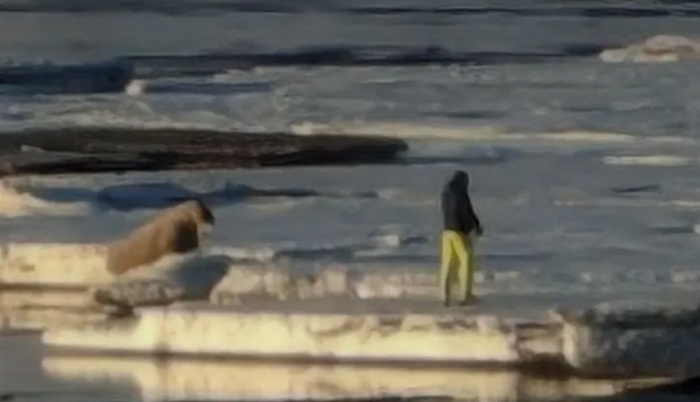
OSLO, April 28 (NNN-AGENCIES) — A tourist visiting the Norwegian Arctic archipelago of Svalbard has been fined more than $1,100 for getting too close to a walrus.
Members of the public alerted the local authorities when they saw a man going onto an ice floe to approach the animal.
It’s against the law to approach the wildlife on Svalbard in a way that disturbs them.
The incident happened near Longyearbyen – the world’s northernmost settlement.
The Svalbard Environment Act stipulates that all traffic on the archipelago must take place in a way that does not lead to unnecessary disturbance of local wildlife – which include polar bears, seals, whales, reindeer and arctic foxes.
The governor has encouraged everyone to keep a good distance from walruses so that they are not disturbed and to avoid danger to people.
Police prosecutor Magnus Rindal Fredriksen said that parts of the incident were observed by several of the governor’s employees.
The incident happened “very close to Longyearbyen, at the bottom of the fjord”, said Rindal Fredriksen, adding that the tourist, who is a Polish citizen and had arrived in the area on the same day, was brought to the governor’s office and paid the fine.
Why did he do it? He was after a good picture, the police prosecutor believes.
Spring and summer are popular with tourists in Svalbard, with many visiting the almost untouched archipelago in the high Arctic while the sun doesn’t set at night during what’s known as the “midnight sun”.
Walruses in Svalbard became protected in 1952 when it became clear only a few hundred remained following more than three centuries of heavy commercial exploitation.
The population of walruses has been growing since the measures were put in place but the species remain on the Norwegian National Red List.
Because of concerns over the impact of tourism and climate change, the Norwegian government has announced tougher regulations, coming into place next year, that include a ban on getting within 150 metres of a walrus.
Other measures include a cap on cruise ships and designated landing sites. — NNN-AGENCIES





